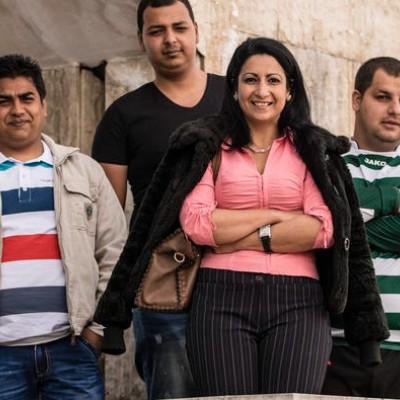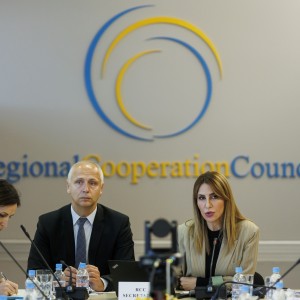Svilanovic: International Roma Day excellent opportunity to recall extensive heritage of region’s largest ethnic minority
08 April 2016

Photo: amitie-community.eu
Today, on the occasion of the International Roma Day, the Secretary General of the Regional Cooperation Council, Goran Svilanovic, extended his congratulations stressing that this is an excellent opportunity to recall rich and extensive heritage and diversity of the region’s largest ethnic minority - Roma[1].
“There are many challenges that Roma are often facing on daily basis, such as social exclusion, segregation and marginalization leading to lack of education, chronic unemployment and limited access to healthcare, housing and essential services, as well as widespread poverty. Therefore, I am happy that the RCC is joining the already existing considerable efforts of the governments of the region in remedying these circumstances, with a three-year project aiming at enabling economic integration and social inclusion of Roma."
The 1.8 million euros worth Project Roma Integration 2020, is a continuation of the Decade of Roma Inclusion 2005-15 and will be funded by the EU and Open Society Foundation. The Roma-led Project will be seated in Belgrade, Serbia, with a team of 4 people responsible for coordination of efforts on exchanging experiences and implementing solutions in the region. Its official launch is expected early June 2016.
“Past efforts in ending the viscous circle of discrimination towards Roma have not been as fruitful as they were expected to be. At the same time, the Roma Decade has provided lessons learned that have to be built upon in order to strengthen efforts to make societies and public institutions more inclusive of Roma communities. There is no quick fix but the RCC is determined to tackle the existing challenges and to provide a fertile ground for ending the discrimination, thus allowing all the citizens of our region to reach their full potential as the only way to secure a better future for SEE region,” concluded Svilanovic.
The Project includes seven IPA II beneficiaries - Albania, Bosnia and Herzegovina, The Former Yugoslav Republic of Macedonia, Kosovo*, Montenegro, Serbia, Turkey. It will foster regional cooperation in strengthening the institutional structures, processes, policies and actions carried out at the national and local level. It will cover the policy areas of employment, health, education, infrastructure and civil registration, with the cross cutting themes discrimination, poverty and gender equality. This Project is a result of RCC’s efforts to streamline this important issue into its work, namely in RCC Strategy and Work Programme (SWP) and the South East Europe (SEE) 2020 Strategy.
[1] As it is most commonly used in EU policy documents and discussions, the term "Roma" here refers to a variety of groups of people who describe themselves as Roma, Gypsies, Travelers, Manouches, Ashkali, Egyptian, Sinti and other titles.
* This designation is without prejudice to positions on status, and is in line with UNSCR 1244/1999 and the ICJ Opinion on the Kosovo declaration of independence.



